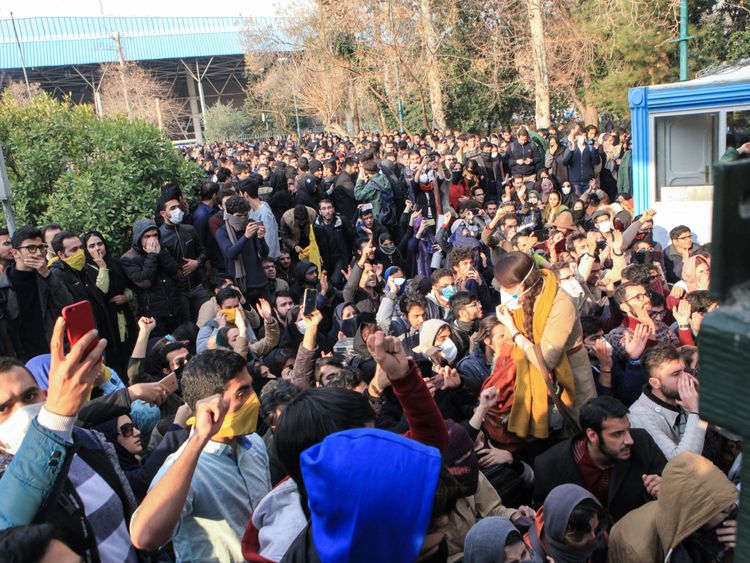Such lessons set the path for a western "cultural invasion", said Mehdi Navid-Adham, head of the state-run high education council.
"This is because the assumption is that, in primary education, the groundwork for the Iranian culture of the students is laid," he explained on state television.
The move has been mocked in Iran, where children usually start learning English between the ages of 12 and 14, while some primary schools and young people from more privileged background often get extra tuition in the language.
A video of Mr Navid-Adham's announcement was widely shared on social media, jokingly referred to as a "filtering of English" and compared with government attempts to block the popular messaging app Telegram.
:: Iran has crushed protests - but damage has been done
Questions over teaching foreign languages have proved divisive at the highest levels of leadership in a country where fears of western influence are keenly felt.
In 2016, Iran's Supreme Leader Ayatollah Ali Al Khamenei criticised English being taught to young children before Persian, using a speech to teachers to warn of a "promotion of a foreign culture" targeting Iranian youth.
"Western thinkers have time and again said that instead of colonialist expansionism ... the best and the least costly way would have been inculcation of thought and culture to the younger generation of countries," he said.
But Hassan Rouhani - the Islamic Republic's more moderate president - disputed the Ayatollah's comments, arguing that Iran's young, multilingual population could bring significant benefits for the country's economy.
The reported decision to restrict English teaching comes after more than a week of anti-regime protests over food price rises, a weak economy and governmental failures, which left 22 Iranians dead and at least 1,000 imprisoned.
The country's Revolutionary Guard claims security forces have ended the wave of unrest.
Intervention from abroad was a cause for anxiety during the uprising, with US President Donald Trump tweeting his "support" for protesters, and Ali Khamenei claiming foreign "enemies of Iran" had stirred up unrest "to create trouble for the Islamic Republic".


